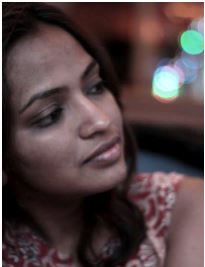Events for 2023/2024
This year we will be hosting a combination of workshops and seminars.
If you are not a staff member at Brunel University then please express your interest in attending any of the events by clicking here. We will then follow up with attendance information nearer the time.
Upcoming Talks:
| Date | Time | Speaker | Talk Title | Institution |
| 21 Feb | 1pm | Dr Rosella Galindo Esparza | Inclusive Immersion: An Exploration of Barriers and Adaptations Strategies among Disabled and Older Users of VR and AR | Brunel University London (Design) |
| 17 April | 1pm | Dr Riccardo Bovo | How verbal and non-verbal communication dynamics relate to the user’s context during collaboration in VR | Imperial College London |
| TBA | 1pm | Dr Daniele Giunchi | TBA | University College London |
| 29 May | 1pm | Dr Soomi Park | Should Robots Blush? | Goldsmiths University of London |
Upcoming Workshops:
| Date | Time | Presenter | Workshop | Institution |
| 13 Mar | 2:30pm | Prof Rob Macredie | Submitting and reviewing process: An editor’s perspective | Brunel University London (Computer Science) |
| 24th April | 1pm | Prof Mark Perry | How to write an effective grant application | Brunel University London (Computer Science) |
Past Events 2021/2022
Haptics: designing and evaluating electrotactile cues
by Yosuef Alotaibi from Glasgow University
When: Wednesday the 26th October 2022
Where: This is a hybrid event. In-person will be hosted at Brunel University London, Wilfred Brown Building Room 207/208. If you prefer to attend online, the link will be sent nearer the time.

Electrotactile stimulation is a novel haptic feedback modality that can evoke different sensations or convey information through tactile displays. However, there is a lack of research investigating its basic design parameters and how they create effective tactile cues on the palm. This research investigates the subjective perception of specific sensations such as urgency, annoyance, valence and arousal, sees how many levels can be distinguished for each sensation, and provides an initial evaluation of how people would react to it. These levels will then be used in designing structured, abstract, electrotactile messages for user interfaces called Electrotactons. These have potential benefits over vibration-based cues due to the greater flexibility of the actuators.
In case you missed this interesting talk, you can watch it here.
Defining the Design Space of Virtual Reality Apps for Wellbeing and Mental Health
by Nadine Wagener
When: Wednesday 28th September at 3 pm BST
Where: Brunel University London, Wilfred Brown Building Room 207/208
Apart from gaming, Virtual Reality (VR) offers more and more support for users interested in increasing their (emotional) health and wellbeing. More and more VR apps promise to help, may it be e.g through exposure therapy, relaxation, mindfulness tasks or emotion regulation support. However, few research has been conducted so far that defines the design space of VR apps for (mental) wellbeing and health: What is the role of VR in relation to real-life therapy? In what ways can VR be used at home to support very individual and specific user needs? How realistic should virtual environments be designed for that use case (or should they be designed at all)? How can VR with its unique features open up new interaction methods that foster self-reflection and emotional expression? And how do users react?
These and more will be questions that will be explored in this guest talk. Based on her publications, current ongoing projects and ideas for future research, Nadine hopes to inspire the audience to design and develop VR apps having wellbeing and health in mind, maybe also in collaboration projects between Brunel and Bremen?!
In case you missed this interesting talk, you can watch it here.
From Haptics to Adaptive Radio for People with Dementia
by Dr Patrizia Di Campli San Vito
When: Friday 1st July at 2 pm
Where: Brunel University London, Wilfred Brown Building Room 207/208

About Patrizia (Paddy)
Dr Patrizia Di Campli San Vito is a postdoctoral research associate in Human-Computer Interaction at the University of Glasgow. She is part of the Multimodal Interaction Group headed by Prof. Stephen Brewster, which is part of the Glasgow Interactive Systems Section (GIST). She finished her PhD on thermal in-car feedback last year, in which she used temperature changes on the steering wheel (sometimes in combination with vibration) to present information to drivers. Currently, she is working on the RadioMe project, a collaboration with the University of Plymouth and the Anglia Ruskin University in Cambridge which is aiming to help people with mild dementia in their own homes with adaptive radio. The RadioMe system will play audio reminders to the people with dementia while they are listening to their normal favourite radio stream and will also change to calming music when agitation is detected in the person with dementia through wearable sensors. Patrizia is mainly involved in the agitation detection and the calendar input for the reminder system.
In case you missed this amazing talk, you can watch it here.
Design as an Inquiry in HCI
by Dr Arthi Manohar
When: Wednesday 11th of May at 2 pm
Where: Brunel University London, Wilfred Brown Building Room 207/208

About Arthi
One of the research group’s newest members. Arthi is a design researcher, investigating the relationship between social design and technology. Arthi joined Brunel University in 2018 as a Lecturer in Design. Previous to Brunel, she was a Research Fellow at Northumbria University Newcastle where she explored complex socio-digital problems including designing for trust within the TAPESTRY project, funded by the RCUK Digital Economy. She has experience in working across interdisciplinary research groups including the Mixed Reality Lab at the University of Nottingham and the Innovation School at the Glasgow School of Art.
Arthi’s Doctorate was a part of an EPSRC Digital Economy project ‘Tales of Things and Electronic Memories’ (TOTeM) from the University of Dundee’s Socio Digital group. Her research interests include participatory design, co-design, user-centered design and Human-Computer Interaction (HCI). Her research and teaching explore the role of human values by investigating the relationship between social design and technology.
In case you missed this informative talk, you can watch it here.
